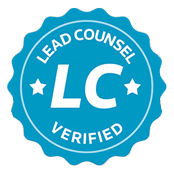Say “No” to Recorded Statements
Insurance companies make their profit by minimizing how much they give to clients. They can use many different ways to avoid giving a large payout on clients’ claims. One of these tactics is to ask for a recorded statement in the early stages of your insurance claim. The request for a recorded statement serves one main purpose: to use it against you later to deny your claim or reduce your payment. It is generally in your best interest not to give a recorded statement to an insurance company.
After a motor vehicle accident, or any kind of incident that causes you injury, expect to get a call from an insurance adjuster or another representative of the other person involved in the accident. Here are some tips on what you should say and what you should avoid discussing during the first post-accident phone call with an adjuster of the other party – this is especially important when the other party is at fault for the accident.
Keep Calm and Be Polite
You may still be hurting physically, emotionally, and mentally from the accident. The best way to handle the call is to be calm and polite. Before you discuss anything, get the name, address, and telephone number of the person you are speaking with, the name of the insurance company he or she is with, and the person or business the company represents (the “insured”).
Say “No” to Recorded Statements
Most claim adjusters will likely push you to give a tape-recorded statement, or casually ask if they may record your phone conversation, claiming it will protect you later. Do not agree to have any conversation recorded. You have no legal obligation to be recorded, and it is against the law for an adjuster to record you without your permission. No law in California makes it mandatory to give an insurance company a recorded statement. This is to avoid you giving out statements incompletely or miss out any important information. Remember once you’ve given out your statement, it can and may be used against you to deny your claim or reduce benefits later.
Only Give Limited Personal Information
You only need to tell the insurance adjuster your name, address, and telephone number. You can also tell them what you do for work and where you are employed. You don’t need to explain or discuss anything else about your work, schedule, or income.
Don’t Discuss the Accident and Your Injuries
Insurance adjusters may try to get you to give a statement or simply engage you in a conversation that will try to get you to tell them about the accident. You may tell them the basic facts, like where, when, what type of accident, the vehicles involved and the identity of any witnesses. Politely refuse to discuss anything further. Naturally, an insurance adjuster is going to want to know about the nature and extent of your injuries. Do not give a detailed description yet. You might leave something out, or discover an injury later, or your injury may turn out to be worse than you originally thought. If you need to say something, just tell the adjuster that you are “still treating,” and leave it at that. Remember, everything you say will be compared to the police report or any statements you made in the past. If there is any discrepancy, it can work against your case. The best way to handle it is to find a qualified attorney who can take care of all your interactions with the insurance company.
In case of an unavoidable accident, the Law Offices of Payam Y. Poursalimi can answer any questions or concerns. Call our office for a free consultation at 877- PAYAMLA.














